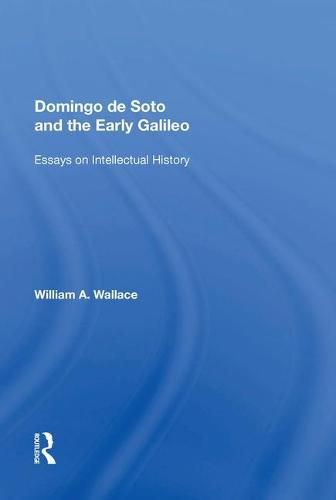Readings Newsletter
Become a Readings Member to make your shopping experience even easier.
Sign in or sign up for free!
You’re not far away from qualifying for FREE standard shipping within Australia
You’ve qualified for FREE standard shipping within Australia
The cart is loading…






The unifying theme in this second volume of essays by William A. Wallace to be published in the Variorum series is signaled in the title of the opening paper: ‘Domingo de Soto and the Iberian roots of Galileo’s science’. The seven essays in the first part provide textual studies of Soto’s early formulations of the laws of falling bodies, the context in which they were developed in the 16th century, and the ways in which they were transmitted in Spain and Portugal to the early 17th century, mainly by Jesuit scholars. The following essays focus on the young Galileo and his work at Pisa and Padua, leading to his discovery of the law of uniform acceleration in free fall. Textual evidence is presented for an indirect influence of Soto’s work on Galileo, mediated by Jesuits who were teaching at Padua in the first decade of the 17th century.
$9.00 standard shipping within Australia
FREE standard shipping within Australia for orders over $100.00
Express & International shipping calculated at checkout
The unifying theme in this second volume of essays by William A. Wallace to be published in the Variorum series is signaled in the title of the opening paper: ‘Domingo de Soto and the Iberian roots of Galileo’s science’. The seven essays in the first part provide textual studies of Soto’s early formulations of the laws of falling bodies, the context in which they were developed in the 16th century, and the ways in which they were transmitted in Spain and Portugal to the early 17th century, mainly by Jesuit scholars. The following essays focus on the young Galileo and his work at Pisa and Padua, leading to his discovery of the law of uniform acceleration in free fall. Textual evidence is presented for an indirect influence of Soto’s work on Galileo, mediated by Jesuits who were teaching at Padua in the first decade of the 17th century.